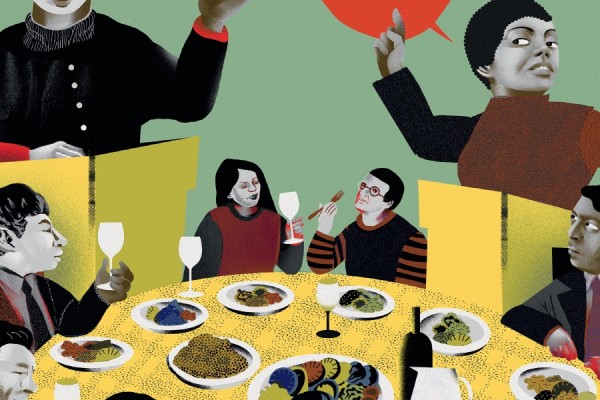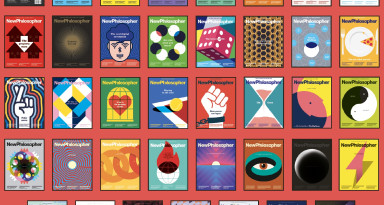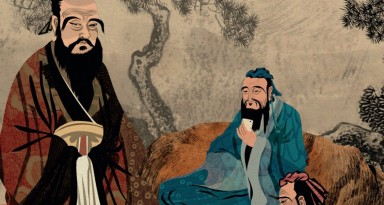When Italian handbag and luggage maker Guccio Gucci retired, handing over to his sons a fortune and the reins of the flourishing business he had created over his lifetime, he didn’t intend to set in motion a chain of events that would see one son sent to prison, one grandson dying penniless, and another grandson, Maurizio, mercilessly shot in the head at work. Businesses forged by passion, and sealed together with familial blood, were supposed to be stalwart investments – impenetrable, private, nimble-footed. And the Gucci label, a multimillion-dollar juggernaut, had been all of this; until, that is, the family started warring.
“What makes war break out in a family?” write Grant Gordon and Nigel Nicholson in the book, Family Wars: The Real Stories behind the Most Famous Family Business Feuds. The authors argue that familial wars are not unlike societal wars over political or economic matters. “Siblings try to outmanoeuvre each other. Sons fight fathers to seize the crown. One family branch engages in a turf war to control or marginalise another. Differences in opinion about an aspect of running the business escalate into a major schism.”
In the case of Gucci, it was all of the above. Guccio Gucci’s sons, Aldo and Rodolfo, and later on his grandsons, Paolo and Maurizio, battled it out over company ownership, direction, its finances, even the stitching used on the green, red, and black leather handbags. While Rodolfo sought to keep Gucci more traditionally Italian, Paolo, the chief designer of the 1,400-strong list of Gucci products, had visions of modernising and marketing the Gucci name far and wide. Paolo, often labelled the ‘black sheep’ of the Gucci clan, once emerged from a board meeting with “blood pouring from a gash in his face,” writes Ann Wroe in Book of Obituaries. “You see what happens when the Gucci board of directors meets,” he announced to reporters.
But, in many ways, it’s understandable. The fashion empire created by Guccio Gucci, formerly a lift boy at London’s Savoy Hotel, offered plenty to fight about. As the company expanded, with luxury stores all over the world and an endless array of products, hundreds of millions of dollars rolled in. The Gucci family had inherited a fiery beast, one that was apt to inflame multiple vices all at once: greed, jealousy, adultery, backhanded dealings, all the way to the final scene in this Roman tragedy. Maurizio, who was the last of the Gucci clan to run the empire, was shot dead, twice in the back and once in the head.
Warring families are nothing new. Shakespearean tales and Greek myths are replete with poisonings, beheadings, and betrayals. We’re like carnivores snapping at a lone piece of red meat: if it’s yours that means it’s no longer mine.
Today’s warring families are a new set, where the rules of the game are fractured and complicated. “Our ancestors gained dominance by beating up or killing rival mating partners,” write Justin Tosi and Brandon Warmke in their book Grandstanding, The Use and Abuse of Moral Talk. Today, “we can gain dominance by embarrassing others on social media”. Indeed, modern family warfare is as likely to take place online as it is at the family dinner table. But it’s not just the location of warfare that has shifted. The nature of warfare, too, has adopted the nuanced and indirect tones of social media chatter, where direct eye-to-eye communication has been replaced by memes and trigger words. In other words, today family members find themselves not warring over money and real-life stuff, but over ‘words’, a phenomenon summed up by Tosi and Warmke as “grandstanding”, which they describe as “the use of moral talk for self-promotion”.
“Every time I would call someone racist or sexist, I would get a rush. That rush would then be reaffirmed and sustained by the stars, hearts, and thumbs-up that constitute the nickels and dimes of social media validation.”
Tosi and Warmke use this real-life quote from an online culture warrior to show how grandstanders get a ‘moral high’ from reading news stories, typing messages about, and fighting with real-life friends and family over moral topics. For the grandstander, moral talk is like magic. “Invoking sacred words – justice, dignity, rights, equality, or honour, tradition, faith, family – magically transforms your nasty, abusive, selfish behaviour into something heroic and praiseworthy,” write Tosi and Warmke. “Want to be cruel to those people you don’t like and have your like-minded peers congratulate you? Wrap your behaviour in high-flying moral language. Voilá!”
Hungry for social status within their own group, humans typically resort to prestige (knowledge, skills, success, or wealth) or dominance (intimidation, coercion, or sheer brute force) to get others to admire them. And grandstanders, explain Tosi and Warmke, seek prestige for their own moral qualities while, at the same time, employ moral talk to shame and silence others. The philosophers put it like this: “Shut up and submit to my view of the world or I’ll shame and embarrass you! I’m the morally good one here!”
So what happens when a grandstander is in the family, no matter their political leanings? As someone who cares about X, I find your views morally reprehensible. Do not even look at me. Using excessive moral outrage, a grandstander in the family can cause extensive harm. As Tosi and Warmke explain using the tools of moral philosophy, grandstanding is a problem on all three major moral theories: it has bad consequences; it fails to treat people with respect; and it is not virtuous. “Grandstanders frequently clothe their attempts to further their own interests in the language of concern for others, and use the same kind of talk as a socially acceptable way to abuse those they dislike. This is not run of the mill, imperfectly virtuous behaviour,” conclude the philosophers. “It is a distinct form of vice.”
With a grandstander in the family, a feud need not be about an inheritance, adultery, backstabbing, or even spilt milk. Wars can erupt like magic, almost out of nowhere. A grandstander can, at any moment, rise up and denounce someone at the table. And if other family members don’t fall into line, the grandstander will dismiss them in turn. “Your views are not only troubling but downright dangerous!” End of discussion.
For a grandstander, their own views on all topics are “utterly obvious”, continue Tosi and Warmke. Granstanders fell that “anyone competent at making moral judgements would surely come to the same conclusion”. And a grandstander will quickly disown a family member for non-compliance.
How have we come to a point in human history where family members are warring over not deeds, but words? What would moral philosopher Friedrich Nietzsche have thought about the grandstander in the family? Philosophers Tosi and Warmke were keen to analyse the grandstander in light of Nietzschean ethics because, to them, grandstanding appears to be the antithesis of ‘doing philosophy’.
According to Nietzsche, the good life for human beings is one of excellence in pursuing goals, whether that’s a fashion empire in the case of the Gucci dynasty, the creation of works of art, nourishing a happy and healthy family, or excelling at one’s chosen field or profession. We, individually, set goals of our own making, and then attempt to achieve them – and we gain immense pleasure when we overcome obstacles and resistance to their attainment. But some people become “frustrated – and sometimes greatly so,” argue the philosophers.
“This is where the trouble starts,” write Tosi and Warmke. “Rather than simply admit defeat, those who fail to exercise their will to power by achieving things that are actually worthwhile move the goalposts. They attempt to redefine what it is to live well and denigrate others’ success. The result is what Nietzsche calls a ‘slave revolt’ in morals.”
In the revolt, people begin using morality itself to satisfy their will to power. Morality is a tool used to raise their status, to attain prestige and dominance, to showcase to others that they’ve achieved something worthwhile in life. “Moral talk is often a sheepskin worn by weak or desperate wolves… It might make them feel powerful but their achievement is empty,” conclude the philosophers. “Impressing others through grandstanding is not the same as actually achieving excellence.”
It was said that grandfather Gucci inflamed rivalry between his sons. A little competition, Guccio Gucci thought, could only produce more committed workers. And despite the vicious battles, Guccio was right in that sense: Aldo and Rodolfo supercharged Gucci over their lifetime to its privileged position today.
Grandstanding, on the other hand, produces no discernible results. “You are a bigot! Do you have any respect for other people?” With a grandstander in the family, everyone loses.






